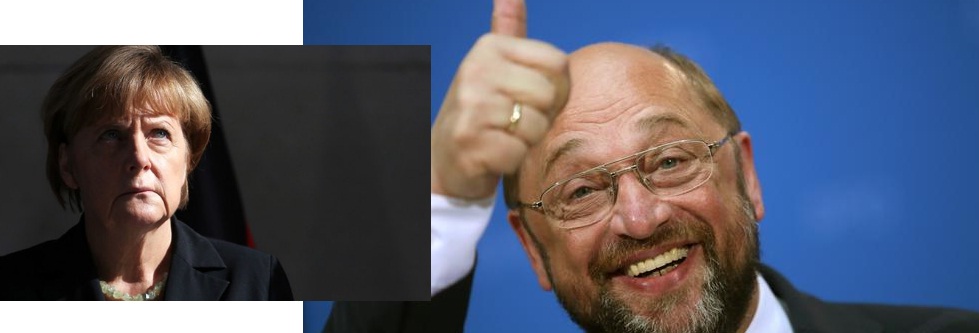Chancellor Angela Merkel’s hopes of forming a coalition have been dealt yet another blow after senior members of her party rejected the vision for a United States of Europe put forward by the Social Democrats (SPD).
Earlier, the CDU coalition negotiations with the liberal Free Democratic Party (FDP) and the Greens collapsed and the Jamaica option was abandoned.
The weak SPD leader Martin Schulz, who had previously ruled out forming a coalition with the CDU, this week proposed the United States of Europe, a federal system. But trusted allies of Chancellor Angela Merkel’s Christian Democrats (CDU) rejected the proposal for the continent.
Germany’s Schulz wants to consolidate the EU, and kick out those who disagree.
Merkel’s supporters were keen for the SPD to agree to a last-ditch alliance with them after talks with two smaller parties collapsed.
“We don’t have to govern at any price, but we must not reject governing at all costs either,” Schulz said on Thursday.
Schulz, who suffered a humiliating loss of voters in September, now wants EU member states to sign up to a “United States of Europe” by 2025 or risk being kicked out of the bloc.
In a SPD conference speech he warned European values were being “undermined systematically” by countries like Poland and Hungary and that the EU needed more powers to force members to comply.
He called for a new treaty to formally convert the EU into the United States of Europe, while bizarrely claiming this was “no threat” to individual countries.
He tweeted in English: “I want a new constitutional treaty to establish the United States of Europe. A Europe that is no threat to its member states, but a beneficial addition.”
Schulz’s proposals would give Brussles power over individual member states’ foreign and domestic policy, as well as taxes.
The socialist leader’s vision was dismissed outright by Volker Kauder, frequently referred to as the “right hand of Merkel”. Kauder called the proposal “more of a threat to the EU and citizens’ approval of Europe”.
“The proposal would also jeopardize the work of unification that is unique in the history of the world because the majority of member states certainly wouldn’t participate in creating a United States,” Kauder told the German daily Tagesspiegel. “I also wonder where the added value of this United States should be compared to today’s Europe.”
An Emnid poll for Bild tabloid revealed that the policy is unpopular in Germany – just 30 per cent of Germans supported Schulz’s idea while almost half rejected it.
The notion is equally unpopular in Europe. An effort to create a consolidated constitution failed in 2005, when the Dutch and French voted not to ratify the ‘Treaty Establishing a Constitution for Europe’ which was signed in Rome on October 29, 2004.
The Treaty aimed at replacing the existing European Union (EU) treaties with a single text, but after three years of reflection, EU members signed the Lisbon Treaty, which consolidated European institutions without infringing on the sovereignty of member states.
The looming threat of new German elections receded somewat after the SPD voted in favour of “open-ended talks” with Merkel’s party. New elections could mean the end of Merkel.













No comments.
By submitting a comment you grant Free West Media a perpetual license to reproduce your words and name/web site in attribution. Inappropriate and irrelevant comments will be removed at an admin’s discretion. Your email is used for verification purposes only, it will never be shared.